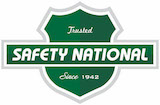Natural disasters are equalizing forces. Fires torch the homes of the rich and the poor alike. Hurricanes destroy cruise ships as well as decade-old cars. Earthquakes level cities, affecting everyone within. But natural disasters are also polarizing forces. Income and wealth shape who gets hit; how much individuals, insurers, nonprofits, and governments are willing and able to help; and who recovers, as well as to what extent.
That dynamic is now evident in Paradise, California, after the Camp Fire, much as it was in Houston after Harvey, Puerto Rico after Maria, New Jersey and New York after Sandy, New Orleans after Katrina, and so many places after so many other disasters, small and large. Across the country, two of the most potent forces in American life—climate change, which portends more frequent and more violent natural disasters, and social stratification—are colliding. And the former stands to make the latter far, far worse.












